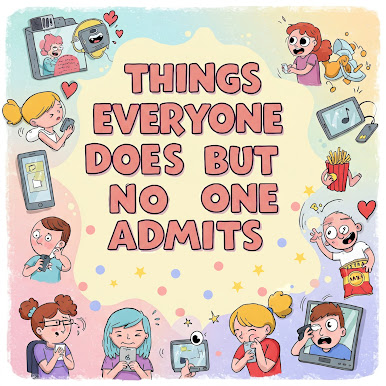From Thou to LOL: The Evolution of English from Old to Modern Slang
Gone are the days when people spent time with each other, indulging in meaningful conversations. People were praised for being well-spoken and making an effort to articulate their points.
While in the olden days, conversations could be very wordy, the new way of conversation includes using so many abbreviations that it requires specialized knowledge to understand what is going on.
Here is how conversations have evolved over time. And for many, here’s a translation of conversations of today.
1) Old English: "Thou hast my gratitude." → Modern Slang: "Thx a ton!"
Thank you very much. Thanks a lot. But in the olden days, people used a lot of heartfelt words to express their gratitude. In modern times, a simple text, minus a couple of letters, is enough to convey appreciation.
2) Old English: "I know not of what thou speakest." → Modern Slang: "IDK what ur talkin’ bout."
What are you talking about? In this case, the question is asked to clarify doubts or used as an inquiry. Once again, the use of abbreviations may take you a couple of seconds to understand what the message is.
3) Old English: "I bid thee good morrow." → Modern Slang: "GM, fam!"
It’s Good Morning. If this took you some time to understand, that’s what it means. In the olden days, everyone used proper manners to greet each other. In the modern version, whether or not the people are actual members of the family, close friends and associates are now collectively known as “fam”.
4) Old English: "Thou art fair of face." → Modern Slang: "Ur lookin’ fire!"
If you’re confused, read it again. Somewhere in the middle of all this, the actual translation is, “You are looking nice.” Or pretty or handsome. Either way, modern slang adds “fire” to emphasize how good you look.
5) Old English: "Forsooth! I am much perplexed." → Modern Slang: "Bruh, I’m so confused rn."
Rn is right now. There, that should clarify some doubts. Rather than saying, I am so confused, in the olden days, the bigger words you use, the more you get your point across, and the more learned you appear.
6) Old English: "This doth vex me exceedingly." → Modern Slang: "This is straight-up annoying."
This is so annoying! Plain and simple, right? Decades ago, people did get annoyed too and used the elongated version of the phrase to put across their point. In the modern version, people add a little extra to show just how annoying something is. It is straight-up annoying!
7) Old English: "I shall take my leave." → Modern Slang: "GTG, peace!"
Bye. Goodbye. Bye for now. There are so many ways to say goodbye. In different languages as well. But the modern version wastes no time in saying bye. While many don’t indulge in such manners, some still end the conversation, especially on text by using the abbreviation GTG instead of Got To Go. Peace is an interesting touch, considering we could all use some.
8) Old English: "Wouldst thou care for a repast?" → Modern Slang: "U tryna grab some grub?"
If none of these make sense to you, fear not. You are simply being asked if you want something to eat. In the olden days, there wasn’t much of a concept of “snacking”. There would be fixed timings for each meal and perhaps a teatime tucked in sometime between lunch and supper.
Modern times are more about snacking and less about proper meals. Hence, the offer of some grub.
9) Old English: "Thy jest is most amusing!" → Modern Slang: "LMAO, that’s hilarious!"
That was a good joke. The modern version is close to what is being implied here, and the abbreviation simply states that the joke is so funny that they laughed really hard.
10) Old English: "The hour groweth late." → Modern Slang: "Yo, it’s mad late."
It’s getting late. This simple sentence gets a little convoluted in the olden times and modern times. The older version is more poetic and isn’t meant to be taken in the literal sense. The same goes for the modern version. There’s less poetry and more exaggeration about being late. But this is what gets the new generation to understand that it is getting very late.
Speech and conversation are going to keep evolving rapidly. Do you think you’ll be able to keep up?




Comments
Post a Comment